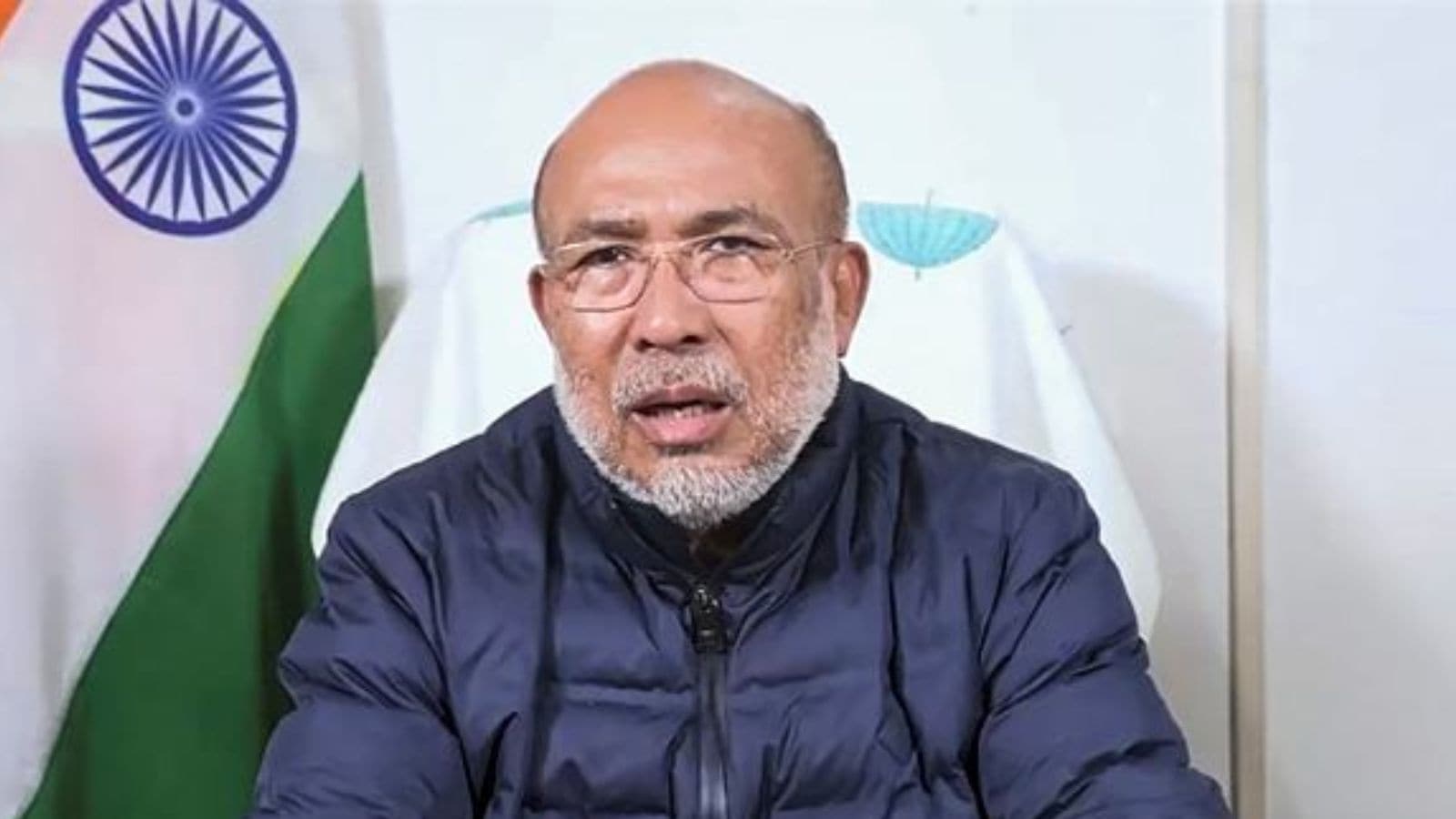After 649 days, the citadel collapsed in Manipur. On Sunday evening, the Governor of Manipur accepted the resignation of Chief Minister N Biren Singh, who finally completed the one-km journey from his secretariat to the Raj Bhavan in Imphal. This marked the end of a saga that began in June 2023, when he turned his earlier resignation attempt into a televised spectacle intended to showcase popular support, presumably to consolidate his position — a sea of supporters gathered in front of the Raj Bhavan to prevent him from stepping down, with his letter of resignation being torn to shreds by a group of women Meira Paibis.
Story continues below this ad
What remains in the ruins of the citadel, which bear the indelible scars of devastation, bloodshed, and displacement, is a fractured state where institutions have withered, trust has eroded, and the fabric of society has been torn apart. The preambular promises of justice, fraternity, and dignity for the individual are sacrificed at the altar of violent cultural ethnonationalism, all in the name of protecting the sanctity of cartographic imaginations and a dangerous fetish for safeguarding an “indigenous population.”
Today, Manipur no longer seems like a state; it appears to be two warring nations forced into an uneasy, militarised coexistence where new ethnic borders have been drawn in blood. It has separated lovers and families, turned students into armed volunteers, neighbours into enemies, villages into battle zones, and communities into warring factions. However, to view the resignation of Singh as anything more than a political shift or manoeuvre dictated by realpolitik to avoid the embarrassment of losing a proposed no-confidence motion in the upcoming budget session of the state assembly would be a mistake. In fact, to imply that the ongoing PIL in the Supreme Court — seeking an SIT-monitored probe into his alleged role in the ethnic violence — was the decisive factor in his resignation might border on political naivete. Such presumptions ignore the history of targeted violence in India and the impunity that political actors across the board have enjoyed for their role in either committing or ignoring it.
To be sure, it is neither an admission of failure, guilt or regret triggered by his visit to the Mahakumbh nor a genuine attempt by the Centre to fix long-overdue accountability. In complete violation of the oath of office, Singh had failed to restrain the spread of systemic hate, bigotry, and structural violence. His resignation letter, in which he urges the central government to continue with the fight and crackdown on “narco-terrorism” and “illegal immigrants”, seems to indict his own inability to keep ethnic fault lines from deepening.
Story continues below this ad
Since the news of Biren Singh’s resignation first broke, most commentary has focused on the surrounding political instability and internal dissension within the BJP party unit in Manipur. The resignation is, at its worst, political chicanery and, at best, a temporary and palliative solution for a state that has been crying hoarse for a permanent resolution. Indeed, it will create space for open dialogue and engagement between different segments of society. But the truth is, 649 days later, there is no justice, no political accountability — only the stench of disappointment and the sound of history repeating itself. One can only hope that this resignation is not just the final act of evasion but also the beginning of an end to the politics of inaction and of wilful exclusion and abandonment. In all of this, one recalls the words of Alan Paton’s from his 1948 book Cry, the Beloved Country about the deep racial divisions in pre-apartheid South Africa, that the tragedy “…is not that things are broken. The tragedy is that things are not mended again”.
most read
Whatever form or shape the new governance structure takes in Manipur, serious institutional revival and sustained course correction, especially from law enforcement, investigatory agencies, courts and justice delivery mechanisms are key to building trust, confidence inter se communities and in the rule of law for creating a hopeful, more resilient future for Manipur.
Notwithstanding, the people of Manipur won’t be the first to be betrayed and won’t be the last either — because this is how the republic survives, by choosing who is expendable.
The writer is a lawyer and researcher based in Delhi.


